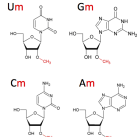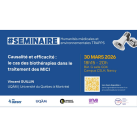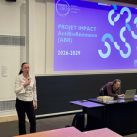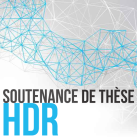
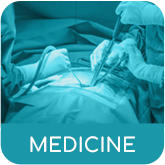

News
Key numbers
- 10Constitutive units
- 222Lecturers and professor
- 22Staff scientists
- 109Technical and administrative staff
- 138phD students
Postdocs students - 2262Publications ACL
2015-2020
Constitutive units

Caroline GAUCHER
CITHEFOR - Therapeutic targets and preclinical drug evaluation
CITHEFOR develops innovative drugs and advanced therapy medicinal products for therapeutic applications focused on inflammatory diseases, cardiovascular pathologies, and tissue (re)vascularization. In this way, we formulate active ingredients that modulate inflammation (anti-inflammatories, chemoattractants) and/or vasomotricity (RAAS modulators, NO donors) in order to improve their bioavailability and/or to restore the physiological functions of barriers and tissues.
Magnus BÄCK
DCAC - Acute and chronic cardiovascular deficiency
Acute and chronic cardiovascular deficiency research unit (DCAC) has a leading position in clinical (aging, telomeres, heart failure, acquired chronic inflammatory vascular diseases and sepsis) and experimental research in mechanotransduction (arterial stiffness), thrombophilias and immunoinflammation (TREM-1 and resolvins). It is structured into two teams: ʺVascular stiffness - Inflammation - Thrombosisʺ and ʺPersonalized Medicine of Heart Failure and Cardiovascular Agingʺ.
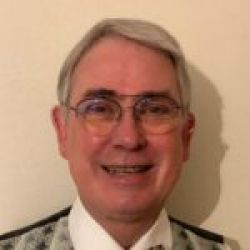
Jean Michel HASCOËT
DevAH - Development, adaptation and handicap
Development-Adaptation-Handicap (DevAH) Research Unit evaluates the human being in his environment, from function to behavior, based on a translational approach in the field of integrative physiology, pathophysiology and prevention. The Unit focuses on studying the efficiency and cognitive-motor deficiencies in the developing human being, from newborns to the elderly, including top-level athletes.

Freddy ODILLE
IADI - Diagnostic and interventional adaptive imaging
The Adaptive Diagnostic and Interventional Imaging IADI unit (UL-INSERM U1254) specializes in MRI imaging. Thanks to its multidisciplinary skills ranging from electronics, instrumentation and MR physics to advanced signal processing and machine learning, the laboratory has acquired a leading position in the design of MRI-compatible instrumentation and in the development of new methods for MRI acquisition and reconstruction.
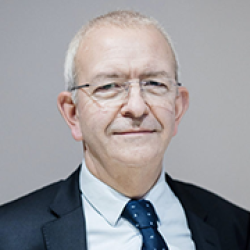
Didier MAINARD
IBSLor - Engineering, biology, health in Lorraine
The mixed service unit Engineering, Biology, Health in Lorraine (IBSLor) provides the scientific community with state-of-the-art technological equipment and unique know-how in the fields of biophysics and structural biology, cytometry, epitranscriptomics, genomics and sequencing, imaging, and proteomics. The core facilities are open to all users belonging to the BMS cluster, the University of Lorraine, as well as to the academic world and to external industrialists.

Bruno CHARPENTIER
IMoPA - Molecular and Cellular Engineering and Pathophysiology
Molecular engineering and joint pathophysiology research unit (IMoPA) is structured into six teams. The research topics covered include a variety of expertise enabling studies to be carried out at the molecular, structural, cellular or integrated levels. They are completed by a multidisciplinary translational research in cell therapy, regenerative medicine and in the field of chronic inflammatory diseases, which extends from the production of stem or immune cells of clinical grade for antiviral or anti-transplantation purposes, to the design of substitute biomaterials for vascular or osteoarticular purposes and their characterization by imaging techniques, through the study of physiopathological factors linking inflammatory joint and digestive diseases.
Nelly AGRINIER
INSPIIRE - Interdisciplinarité en Santé Publique, Interventions & Instruments de Mesures Complexes
INSPIIRE laboratory “Interdisciplinarity in Public Health, Interventions & Complex Measuring Instruments - Eastern Region” is a research unit developing interdisciplinary research targeting public health, especially focused on:
- Development and evaluation of prevention programs including complex interventions
- Development and validation of perceived health measures and other complex public health measures used as outcomes.
NGERE - Nutrition-genetics and exposure to environmental risks
The Nutrition-Genetics and Exposure to Environmental Risks (NGERE) unit focuses its research activity on the trajectories of normal and pathological aging, particularly in relation to the one-carbon metabolism, the genetics of obesity, cancers and the chronic inflammatory bowel diseases (IBD). We are developing preclinical studies on innovative treatments for rare diseases, steatohepatitis and chronic inflammatory bowel diseases.
Alain LOZNIEWSKI
SIMPA - Stress, immunity, pathogens
Stress, immunity, pathogens research unit (SIMPA) is the result of the collaboration of immunologists, microbiologists and neurobiologists who study together the impact of chronic socio-environmental or gravitational stresses on the immune system, the nervous system and microbiota. Our work takes advantage of the national and international recognition acquired in space immunology by the unit, of the complementarity of our approaches and knowledge, and of a very favorable scientific environment.
Our research has an applied aim for astronauts but also a wider societal aim since stress is omnipresent in our society.


